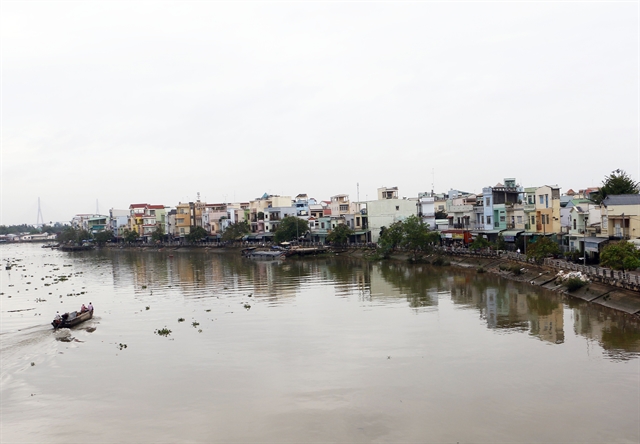 Politics & Law
Politics & Law

Researchers surveyed 63 provinces and cities on two main pillars – budget transparency and civil participation – to evaluate localities’ efforts to fully disclose all relevant fiscal information in a timely and systematic manner.

|
| An urban area in Vĩnh Long Province's Bình Minh District. The research group led by the Việt Nam Institute for Economic and Policy Research (VEPR) recognised the Mekong Delta province of Vĩnh Long as having the most transparent administration in terms of its budget, with 90.52 points. — VNA/VNS Photo Phạm Minh Tuấn |
HÀ NỘI — Local governments have become more transparent with how they spend public money, but more needs to be done, according to a report.
The 2018 Provincial Open Budget Index (POBI) report published yesterday by Budget Transparency, Accountability and Participation (BTAP) showed that the average transparency score out of 100 of provinces and cities increased from 30.5 in 2017 to 51 in 2018.
The research group led by the Việt Nam Institute for Economic and Policy Research (VEPR) recognised the Mekong Delta province of Vĩnh Long as having the most transparent administration in terms of its budget, with 90.52 points.
The coastal northern city of Hải Phòng placed last with 5.14 points.
Researchers surveyed 63 provinces and cities on two main pillars – budget transparency and civil participation – to evaluate localities’ efforts to fully disclose all relevant fiscal information in a timely and systematic manner.
The index was built on four main criteria of completeness, timeliness, availability and convenience in providing seven documents that the 2015 Law on State budget mandates be disclosed and two other documents that need to be published with international best practices.
These documents should be found on the websites of provincial people’s committees, people’s council and departments of planning and investment.
The coastal southern centre and Mekong Delta were the two regions with the highest average POBI points of 60.9 and 59.16, respectively.
Meanwhile, northern central provinces were most reticent to disclose public budget information.
Last year, 29 provinces published draft budget estimates in a timely fashion( within five days of their delivery to provinces’ people’s councils), compared to only nine in 2017.
However, completeness and the convenience of accessing budget-related documents were improved remained poor.
Only 10 provinces fully disclosed all 13 forms of their provincial draft budget estimates in 2018 compared to two provinces the year prior.
Although there is a section for budget transparency on the websites of provincial departments of planning and investment, information is often difficult to access and rarely updated.
On civil participation, the report concluded provincial authorities did not help people engage in budget transparency.
The national average score for this was 34.35, with Bắc Ninh Province leading at 66.6 points.
On behalf of the research group, researcher Vũ Sỹ Cường expressed his hopes that the report would help enhance budget transparency.
“I think the National Assembly, when discussing budget allocation, should also take how provinces use the State budget and disclosure related information,” he said.
“There should also be mechanisms to ensure localities make the information available for people to effectively monitor the public budget,” Cường added.
Nguyễn Minh Tân, deputy head of the Finance and Budget Division under the National Assembly’s Finance and Budget Committee, said budget information remained lacking as provincial authorities had not understood the importance of transparency to local development. At the same time, Việt Nam has not issued any regulations to punish localities who aren't transparent.
“It is essential to create pressure and instruct local authorities to improve the availability of budget-related information. This is a legal loophole outside of the report’s scope that needs addressed in the long term,” he said.
POBI is a national initiative implemented independently by non-profit research institutes. The 2018 POBI report was conducted by two members of BTAP including VEPR and the Centre for Development and Integration (CDI) under the framework of the Promoting transparency, accountability and people participation in managing the state budget project sponsored by the EU Delegation to Việt Nam through Oxfam.
“POBI along with other indexes such as PCI (provincial competitiveness index) has become a tool to enhance openness, democracy and transparency as well as help Việt Nam demonstrate international commitments of an open government,” said VEPR director Nguyễn Đức Thành.
The full report can be found at www.ngansachvietnam.net. — VNS




